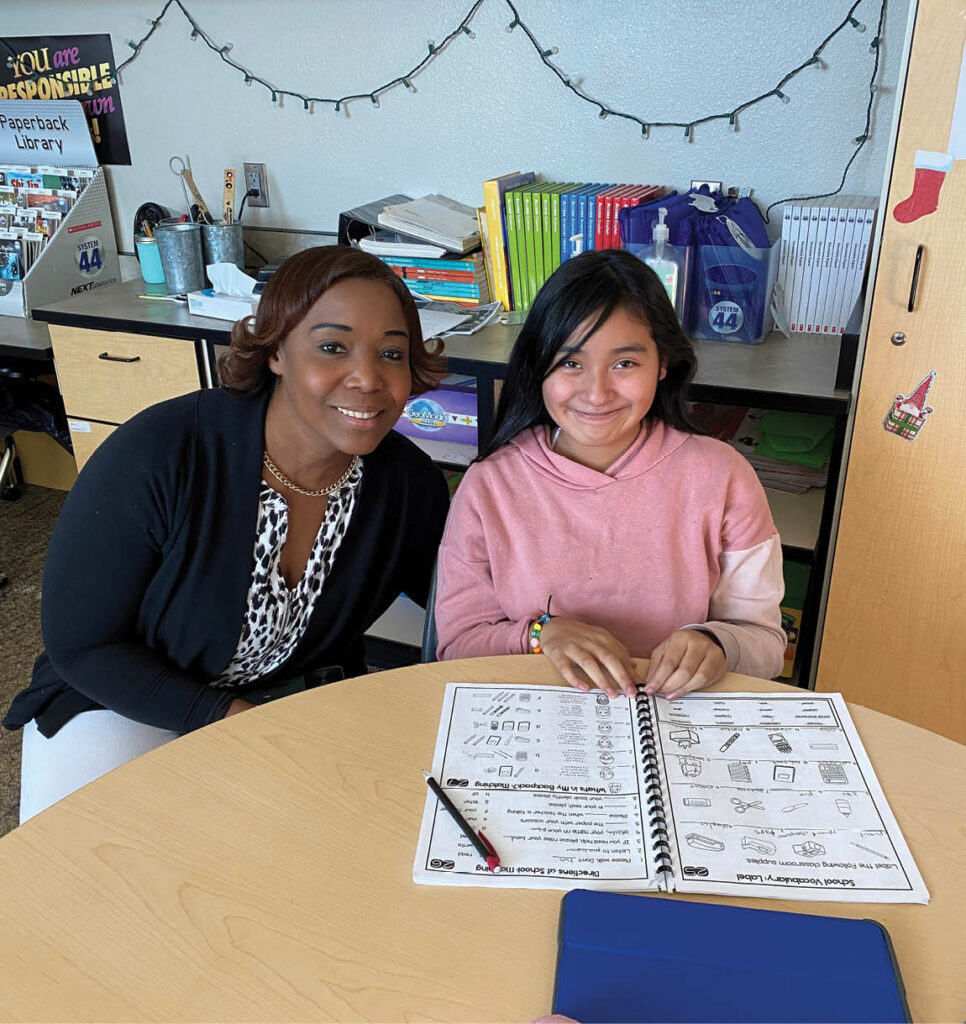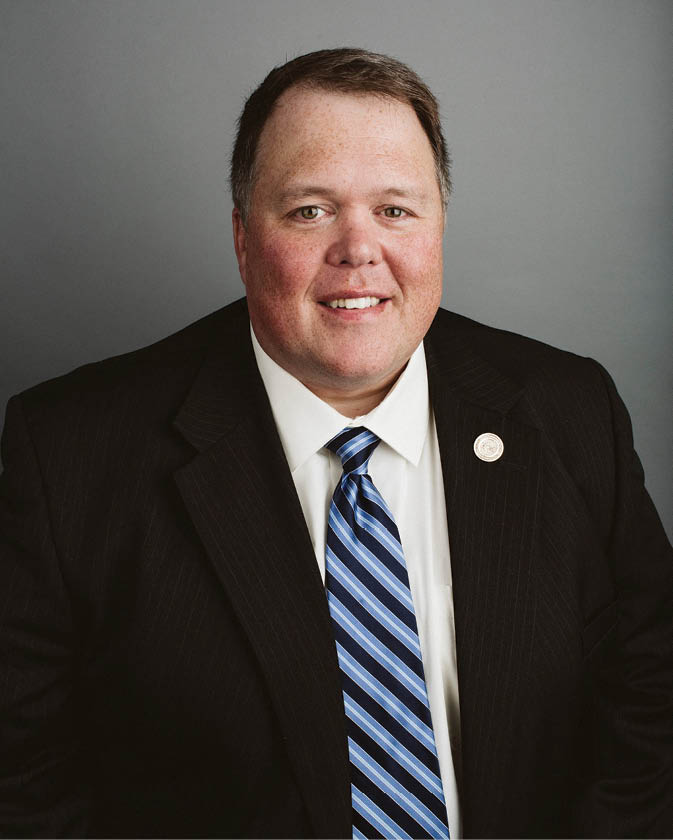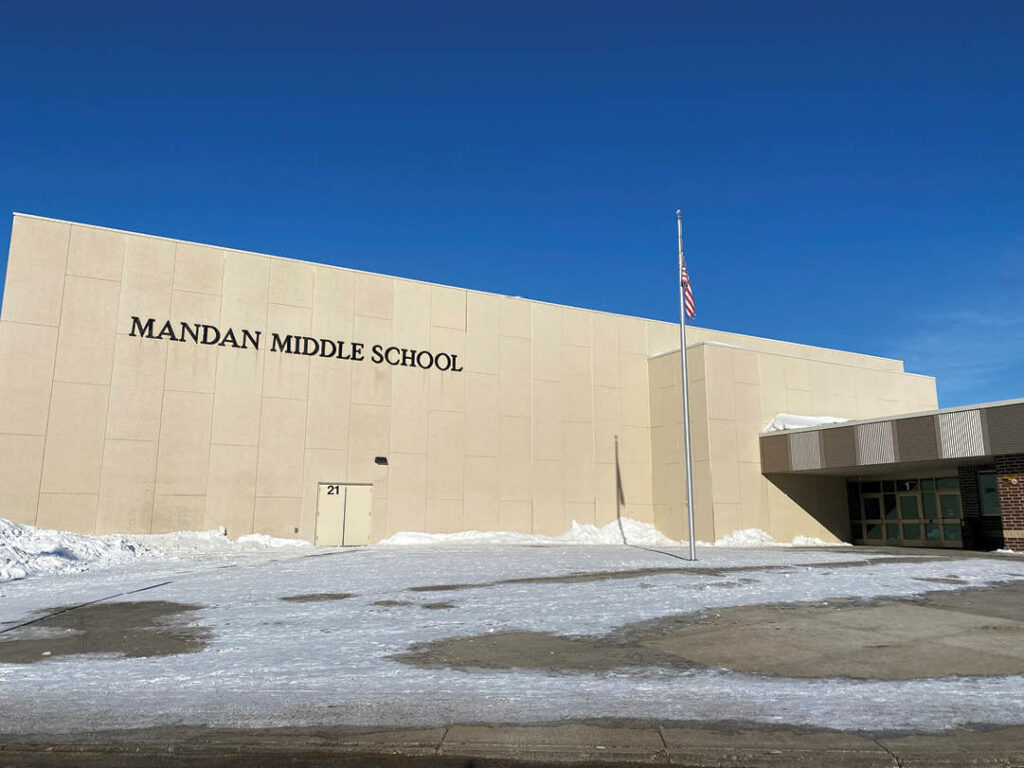Welcome Home

Mandan is a community of just over 24,000 people located in the south-central part of North Dakota on the banks of the Missouri River across from Bismarck, the capital city. This area of the state is home to the traditional homelands of several Native American tribes, including the Lakota, Dakota, Mandan, Hidatsa, and Arikara that each spoke—and in some places continue to speak—their own language. With westward expansion, settlers from Germany and several Scandinavian countries also began to call this area home. Many of these European immigrants continued to speak their home languages even though their children were learning English at school.
Today, at Mandan Public Schools (MPS)—a district serving 4,272 students—it’s hard to imagine a time when the only foreign languages spoken at school were those being taught in classrooms, as electives, or the random inappropriate word or phrase a student may have picked up from grandparents or other family members to their parents’ dismay. At the start of the current school year, MPS enrolled 140 English learners. Spanish is the predominate language they speak; however, 18 other languages are spoken by students in the district, including Arabic, Chinese, Russian, Tagalog, Bisayan, Lakota, Pashto, Thai, Portuguese, Igbo, Filipino, Swahili, Chamorro, Creole, Siouan, Chaldean, Chuukese, and French.

In 2011, MPS had four EL students; by 2015 there were 30. Around 2015, a large meat processing plant located in Mandan began recruiting employees from outside the continental United States. The company’s initial recruitment efforts were concentrated in Puerto Rico. When these recruitment efforts began, the school district and the company had some discussion of potential impacts. School officials were very aware what the possibility of large numbers of workers coming with their families—without speaking English—would mean for the school district and the community.
As one might imagine, language is not the only barrier that families encounter in moving from Puerto Rico to Mandan. The needs of the school-age children who began coming here in 2011 were many, and at that time the EL staff in our school district consisted of one teacher and three paraprofessionals.

Today, the EL staff at MPS consists of four teachers, with the high school and middle school each having a dedicated teacher, and two other teachers serve the district’s six elementary schools. There are also eight EL paraprofessionals, several of whom are fluent in Spanish. One is even a recent graduate of Mandan High School and a graduate of the EL program himself. As the number of EL students continues to increase, so too does the need for the school district to provide for the school-aged children and their families.
Rising to the Challenge
Knowing something had to be done, the school district started taking small incremental steps to adopt a school board policy and develop an English learner program handbook to serve as a roadmap for this rapidly growing population. The handbook includes this statement of commitment:
“The Mandan Public School District is committed to providing an appropriate education to our English learner (EL) students. We understand our responsibility to provide placement, curricular, and instructional services to ensure that all English learners are equipped to participate effectively in their school’s educational programs.
To accomplish this, Mandan Public Schools is committed to implementing the Lau Plan, which details the services provided to English learners. These include identification, assessment, registration, placement, exiting, and monitoring, as well as procedures to ensure the proper identification of EL students requiring special education.
The Mandan Public Schools EL Program consistently provides these services. We also follow federal and state regulations related to the education of English learners. In addition, our EL program utilizes best practices, ensuring that valuable educational opportunities are available for our English Learner students.”

To help meet this commitment, the district provides general education teachers with valuable resources to help in providing instruction to students who don’t speak English. As required by law, each student also has an Individualized Language Plan (ILP) written by a team that includes a general education teacher.
The school district also makes resources available for parents. These include information on interpretation and translation, resource videos for using the Canvas learning platform, educational videos, information to understand their child’s test scores, games for English learners, Duolingo language learning websites, and information on how to access family liaison services. All this information can be instantly translated into several different languages as the district website has a “language” tab at the top of the homepage that allows users to select the language of their choice. MPS has also created courses on the Canvas learning platform to be used by incoming EL students who are just acquiring English speaking skills. These courses are also translated into several different languages.
Hiring a Family Liaison
As the number of students and families in the school district has continued to increase, the need for student and family assistance has become evident. In the fall of 2021, MPS hired a full-time family liaison to help new students and families adjust to life in Mandan. Arlette Faul, a native of Panama City, Panama, started her career with MPS as a paraprofessional in the EL program. As the MPS family liaison, she provides services and builds relationships that are an important part of the academic success of students and the transition of their families into our community.
Some of the things that make the transition difficult for families include adjusting to the weather and climate (winters are cold up here!) and the large size of our schools, as well as understanding how the schools operate, how the transportation system works, and how the legal system functions. For most families, the transition process is gradual. It often takes families one to five years to acclimate to our community. How long the process lasts depends on many factors, the biggest one being the level of English that family members speak. If no one in the family speaks English, or they do not have friends or relatives in the area, everything is obviously more difficult.
It’s situations like these where Faul has been more valuable than one can imagine. For many families, she has served as the single point of contact upon arriving in Mandan. She has always been there to support them by providing clothing, serving as an interpreter, and helping families secure housing and food.
Faul participates in 25–30 meetings and conferences each week, across all grade levels, in an interpretive capacity. It really is amazing to see the stress of parents melt away and a sense of comfort come over them when they see Faul walk through the door. For many students and parents, her presence means they will be heard, and that no language barrier will exist.
To further build these relationships, several times a year we hold family engagement events to bring the EL students and their families together. These events range from game nights with prizes and food to health fairs where families can come have their blood pressure and blood sugar checked and learn about ways to stay physically active. Sometimes we hold presentations about making healthy food choices. These events often take place at our school, and they are just one more way to help our families become comfortable in the building and realize it is a safe place to be.
Mandan Public Schools will always look for ways to help our English learners and support our staff members who bear the responsibility of ensuring that our new students and their families have the best chance of success. Our community and school district continue to grow at a very rapid pace with more students, including those in the EL program, enrolling every week. In fact, while writing this article I received an email informing me that a new student from Mexico will soon be attending our school, and that no one in the family speaks English.
Fortunately, I know exactly who can help them. “Arlette, are you busy?”
Michael Gilbertson is an assistant principal of Mandan Middle School in Mandan, ND.
